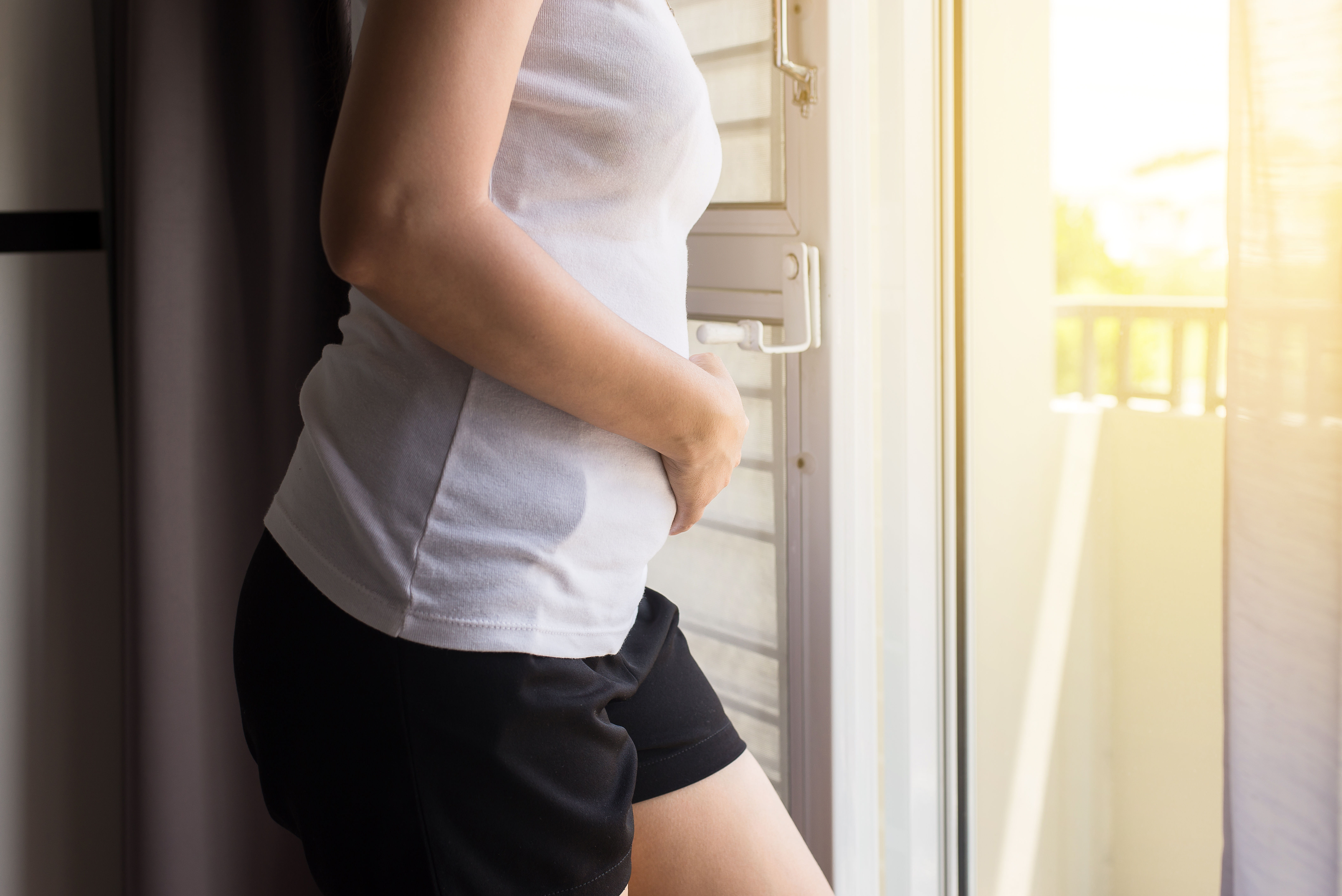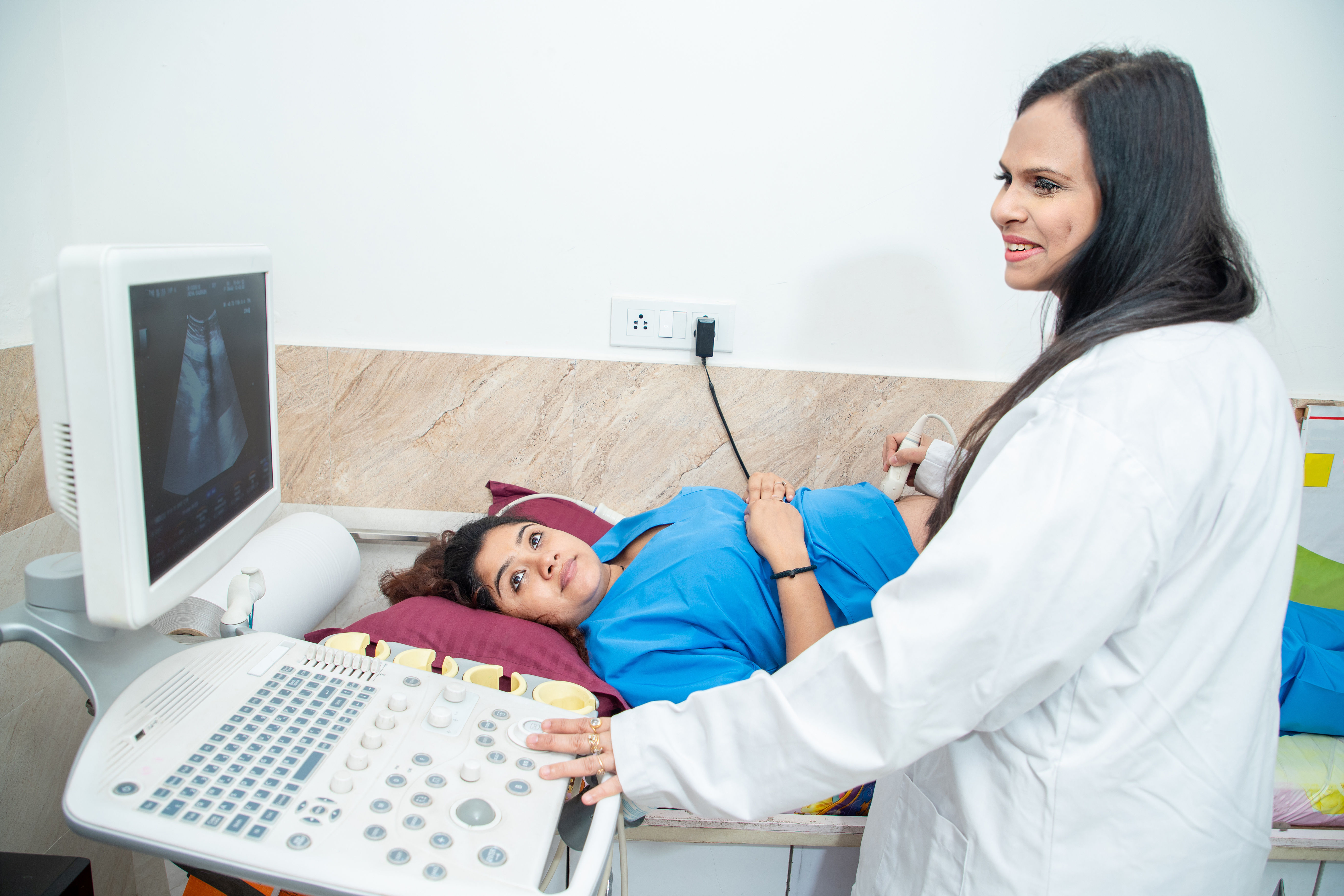
In the week 6, your baby is
the size of a Lentil
Your baby's major organs are forming, and you might experience fatigue, mood swings, or morning sickness this week!

Welcome to Week 6 of pregnancy! By now, you’re probably starting to feel like everything is moving fast. At this stage, you’re not just “pregnant” anymore; it’s becoming more real, and your baby is undergoing some incredible changes. This week is a turning point in the journey, as your baby’s tiny body is rapidly growing and developing, and you’re probably noticing some new symptoms as well.
At six weeks, the body is adjusting to support the baby’s rapid growth. Tracking your symptoms is one of the best ways to keep a check on what is going on with your body.

Morning sickness
With or without vomiting, nausea is caused by rising hormone levels and is often accompanied by heartburn due to stomach acid.
Fatigue
Many women feel exhausted as their bodies work hard to sustain the pregnancy.
Tender breasts
Hormonal changes can make breasts sore or sensitive.
Frequent urination
Increased blood flow and pressure on the bladder often lead to more frequent bathroom trips.
Food cravings or aversions
Some women crave unusual combinations of food or experience aversions to specific smells and tastes.
Mood swings
Hormonal fluctuations may cause emotional highs and lows.
Spotting
Mild bleeding can occur as the placenta begins to develop.
Bloating
Feelings of fullness and bloating are common for some women.
By Week 6, your baby is still tiny but growing at an incredible pace! Measuring about the size of a sweet pea, your little one is beginning to look less like a blob and more like a baby.

Organ Development
Your baby’s organs are developing rapidly. The heart, which started as a tiny tube, now beats regularly. The neural tube, destined to become the brain and spinal cord, is fully formed. The brain is growing quickly and beginning to control basic functions—a remarkable milestone!
Facial Features
Though your little one still resembles a tadpole, facial features are beginning to take shape. The eyes are forming, and tiny nostrils are visible. The mouth and jaw are also starting to develop.
Weight of the Foetus
At about 4-5 mm, your baby is roughly the size of a sweet pea. Despite being so small, those tiny cells work tirelessly to create the body systems to sustain them.
Movement of the Baby
While you’re not feeling any movement, it’s on the way! Muscles are forming, laying the foundation for your baby’s first movements. You’ll begin to feel those delightful little flutters in just a few weeks.

Your strength and resilience in these early weeks are inspiring. Every day brings you closer to a beautiful new chapter. You've got this!
From nausea to mood swings, your body is adapting to the changes required to support a growing baby.

Breasts
Your breasts may feel tender, swollen, or heavier. This happens because your body is getting ready for breastfeeding. You may also notice your nipples becoming darker or more sensitive.
Hair, Skin, and Nails
Pregnancy hormones work differently for everybody. Some mums-to-be notice their hair becoming thicker and shinier, while others might find their nails growing faster. Your skin could also show changes, such as a healthy glow or, for some, pigmentation and acne breakouts.
Respiratory and Cardiovascular Systems
You may sometimes feel a little out of breath or notice your heart beating faster. This is normal as your heart and lungs work harder to pump blood and oxygen to your baby.
Uterus and Cervical Position
By Week 6, your uterus is about the size of a lemon. Although still small, it will continue to grow as your baby develops. At this stage, it is tilted forward and gradually moving upwards within your pelvic area.
Vaginal Discharge
Increased discharge is common during pregnancy and is now thicker and milky white. If it has a strong odour or is accompanied by itching, consult your doctor to rule out any issues.

Childbirth prep
Enrol yourself in prenatal courses to learn different labour stages and what to expect.

Food to avoid
It's best to not consume raw, high-mercury fish, unpasteurised dairy and alcohol

Embrace change
Breast changes like heaviness and larger areolas are normal, switch to supportive bras.

Stay active
Moderately intense exercise is great for you, but avoid sports that risk abdominal injury.

Prenatal diet
Make your diet nutritious and include prenatal vitamins containing folic acid and iodine.
Even though you’re still in the early stages of pregnancy, now is a great time to see a doctor. While it’s too early to do a lot of testing or have an ultrasound that shows your baby, your doctor will likely recommend a few tests.

Blood Tests:
Blood tests during pregnancy confirm your pregnancy, check hCG levels, and may also screen for your blood type, iron levels, and infections like HIV, syphilis, and hepatitis.
Ultrasound:
Ultrasounds are typically scheduled later, but some doctors may recommend an early scan if there are concerns or a history of pregnancy issues. A minor ultrasound scan can confirm the health of the pregnancy.
First Doctor Visit:
In Week 6, you'll likely have your first doctor's appointment. They'll review your medical history, perform a basic check-up, and offer advice on diet, supplements, and lifestyle changes.

Discover trusted advice from experts for all stages of your parenting
Fatigue is common in Week 6, so it’s important to rest when you can. Take naps or sleep longer at night to help your body recharge as it works hard to support your baby.
Mood swings are normal in early pregnancy due to hormonal changes. You might feel more emotional or irritable, but it’s temporary. Be kind to yourself and talk to your partner or friends if you need to vent.
It’s generally safe to exercise during early pregnancy, but make sure you stick to low-impact activities like walking or swimming. Avoid heavy lifting or strenuous workouts until you talk to your doctor and get their advice.
Nausea is common in Week 6. To manage it, eat smaller meals more often, avoid strong smells, and drink plenty of water. Ginger tea or snacks can help too. If nausea becomes severe, talk to your doctor.
Your baby is about the size of a sweet pea, roughly 4-5mm in length. Though tiny, your baby is growing rapidly, and the foundations for all of its major organs are being laid down this week.
Signs of a healthy pregnancy include a positive test, rising hCG levels, and symptoms like nausea, fatigue, and breast tenderness. Contact your healthcare provider if you experience heavy bleeding or severe cramping.
Your doctor will confirm your pregnancy, review your medical history, and provide guidance on diet, exercise, and lifestyle changes.
Yes, hormonal changes can cause mood swings, which are normal and usually settle as your body adjusts.